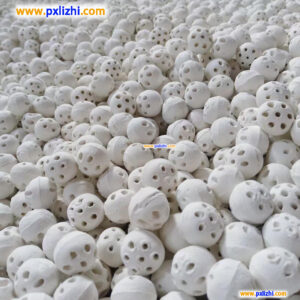Inert Ceramic Balls: Key Applications and Benefits in Industrial Processes

Inert Ceramic Balls: Revolutionizing Industrial Efficiency
Modern industrial processes demand robust solutions for optimizing chemical reactions and material handling. Among these solutions, inert ceramic ball technology stands out as a fundamental component across multiple sectors. These high-purity ceramic spheres serve as indispensable support media in reactors, towers, and vessels where chemical inertness and thermal stability are paramount.
Chemical Resistance and Thermal Shock Performance
Manufactured from high-alumina compositions, these balls demonstrate exceptional resistance to acidic and alkaline environments. Their low thermal expansion coefficient enables stable performance in temperature-cycling operations, preventing structural degradation during rapid heating or cooling cycles. The spherical geometry ensures optimal fluid distribution while minimizing pressure drop across industrial systems.
Primary Industrial Applications
Petrochemical Processing Systems
In refinery operations, ceramic balls create protective barrier layers atop catalyst beds. They function as redistributors for vapor-liquid flows in fractionating columns while preventing catalyst leakage. Their mechanical strength withstands operational pressures exceeding 1000 PSI in hydrotreating units.
Environmental Protection Applications
Air purification towers utilize ceramic balls as support media for activated carbon and molecular sieves. Their uniform size distribution maintains consistent gas flow patterns in desulfurization systems, enhancing contaminant removal efficiency by 15-20% compared to random packing alternatives.
Economic and Operational Advantages
Facilities report 30% extended catalyst lifespan when implementing ceramic ball support systems. The reduction in maintenance frequency translates to notable operational cost savings. Their non-porous surface characteristics prevent fouling accumulation, ensuring consistent process parameters over multi-year service periods.
Frequently Asked Questions
What temperature range can inert ceramic balls withstand?
These ceramic spheres maintain structural integrity from cryogenic conditions (-200°C) up to 1800°C continuous operation, making them suitable for extreme processing environments.
How do ceramic balls compare to metallic alternatives?
Unlike metal supports, ceramic balls eliminate galvanic corrosion risks while providing superior resistance to oxidation and chemical attack. Their dielectric properties prevent electrical arcing in sensitive applications.
Optimize Your Industrial Process Today
Discover how integrating premium inert ceramic ball solutions can enhance your operational reliability. Contact our technical specialists for personalized application analysis and receive a complimentary system evaluation. Request your product sample kit to validate performance in your specific operating conditions.